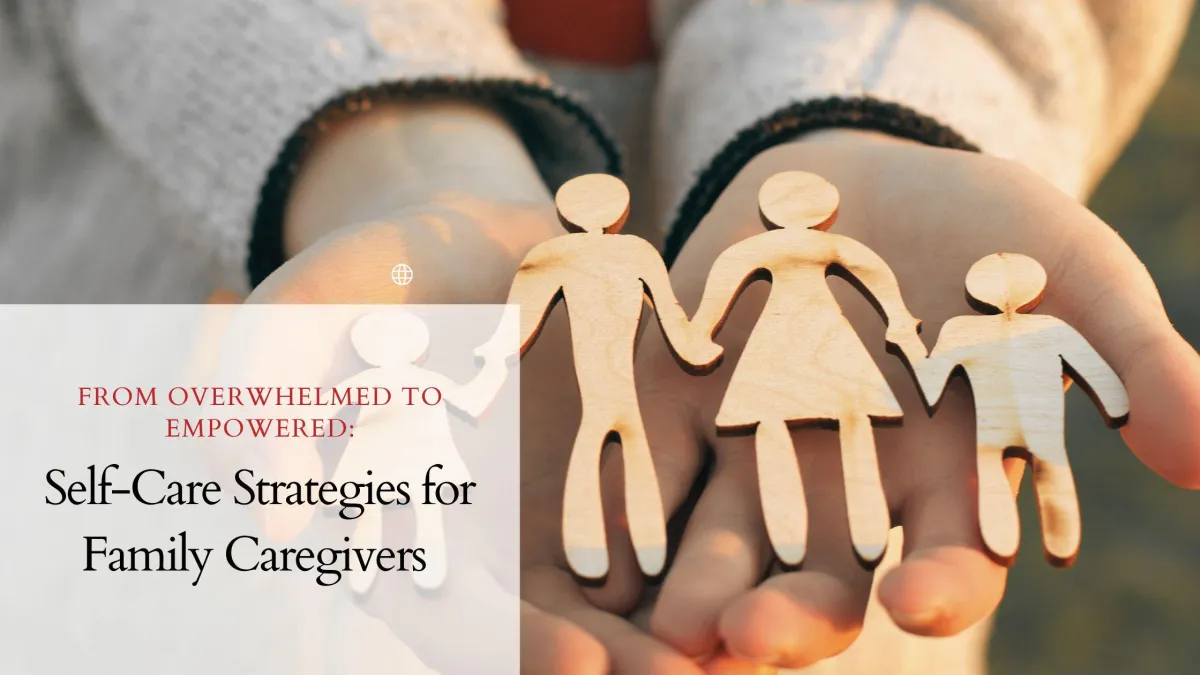
From Overwhelmed to Empowered: Self-Care Strategies for Family Caregivers
Caring for a loved one is one of the most meaningful roles a person can take on. But it also comes with invisible weight—long days, emotional strain, and the constant worry of whether you’re “doing enough.” Family caregivers often put their own needs last, which can lead to burnout, illness, and feelings of deep isolation.
Self-care isn’t selfish. It’s the foundation that allows caregivers to show up with strength, patience, and compassion. By prioritizing your own well-being, you can move from feeling overwhelmed to truly empowered.
The Challenges of Family Caregiving
Every caregiving journey is unique, but there are common challenges that so many families face:
Emotional strain and guilt – Caregivers often wrestle with anxiety, grief, or guilt for not being able to “do it all.” Watching a loved one decline—especially with dementia or chronic illness—takes a heavy emotional toll.
Sleep disruption – Nighttime wandering, frequent medical needs, or the stress of always being “on call” means many caregivers struggle with fatigue. Poor sleep increases the risk of depression and health problems.
Decision fatigue & medical complexity – From managing multiple medications to navigating insurance, caregivers can feel buried under constant choices with high stakes.
Financial and career pressure – Many reduce work hours or leave jobs to provide care, leading to financial stress on top of rising medical costs.
Physical toll – Lifting, mobility assistance, and long hours can cause chronic pain, back problems, or injuries.
Social isolation and identity loss – Caregivers often sacrifice hobbies, friendships, and career goals, leading to loneliness and a fading sense of self.
Cultural and gender expectations – In many families, caregiving responsibilities fall disproportionately on women or are influenced by cultural beliefs, sometimes making it harder to seek outside help.
Recognizing these challenges is the first step. The next is building a realistic self-care plan that prioritizes the caregiver as much as the care recipient.
Practical Self-Care Strategies for Family Caregivers
1. Prioritize Your Own Health
Neglecting your body makes it harder to provide care. Commit to:
2. Set Boundaries and Ask for Help
Caregiving is not meant to be a solo journey.
3. Build & Maintain a Support System
Isolation is a hidden danger for caregivers. Protect yourself by:
4. Manage Stress and Mindfulness
Stress relief isn’t optional—it’s medicine for the caregiver’s mind. Try:
5. Embrace Technology for Support
Modern tools can make caregiving lighter:
6. Plan Ahead for Peace of Mind
Uncertainty breeds anxiety. Reduce it by:
Conclusion: From Stress to Strength
Family caregivers are the unsung heroes of healthcare. But you cannot pour from an empty cup. By addressing your own needs, setting realistic boundaries, and embracing support systems, you can transform the caregiving experience from draining to sustainable—and even joyful.
Supporting Caregivers with Compassion at Forrester Homecare
At Forrester Homecare, we understand that caregiving impacts entire families, not just the patient. That’s why our care plans support both the loved one and the caregiver—through respite services, companion visits, and technology-assisted connections that keep families engaged.
Whether you need guidance, short-term relief, or long-term solutions, Forrester is here to walk alongside you with compassion, expertise, and joy. Connect with us today to discover how we can help you move from overwhelmed to empowered.
